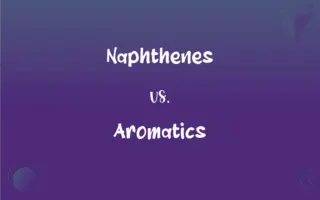Qualified Stock Options vs. Non-Qualified Stock Options: What's the Difference?
Edited by Aimie Carlson || By Janet White || Published on July 28, 2024
Qualified stock options offer tax benefits and must meet specific IRS criteria, whereas non-qualified stock options do not offer such tax advantages and have fewer restrictions.

Key Differences
Qualified stock options, also known as incentive stock options (ISOs), are a form of employee stock options that offer tax benefits under the U.S. Internal Revenue Code. They are available only to employees, not consultants or board members, and must be held for a period before being sold to qualify for capital gains tax treatment. Non-qualified stock options (NSOs), on the other hand, do not qualify for special tax treatments and can be granted to employees, directors, contractors, and others. Upon exercise, the difference between the market price and the grant price is taxed as ordinary income.
Qualified stock options are subject to more stringent regulations than non-qualified stock options. For instance, they must adhere to specific holding period requirements to achieve favorable tax treatment. The employee must hold the stock for at least one year after the exercise date and two years after the grant date. Non-qualified stock options do not have these holding period requirements, making them more flexible for the recipient but resulting in different tax implications.
The tax implications for qualified stock options are generally more favorable than those for non-qualified stock options. When a qualified stock option is exercised, the individual does not have to pay ordinary income tax on the difference between the stock's market value and the exercise price. This benefit is not available with non-qualified stock options, where this difference is taxed as ordinary income at the time of exercise.
Another key difference is in the eligibility requirements. Qualified stock options are typically offered as a part of executive or high-level employee compensation packages and are subject to specific rules set by the IRS. Non-qualified stock options are more commonly used and can be offered to employees at any level, consultants, and outside directors without these constraints.
The reporting requirements vary between the two types of options. Qualified stock options require employers to comply with particular reporting procedures to the IRS and the employee. Non-qualified stock options have simpler reporting requirements, but the income from the exercise of these options must be included in the employee's W-2 form.
ADVERTISEMENT
Comparison Chart
Tax Benefits
Offer tax benefits; capital gains tax on sale after holding periods.
No special tax benefits; taxed as ordinary income upon exercise.
Eligibility
Restricted to employees; subject to IRS criteria.
Available to employees, consultants, directors; fewer restrictions.
Taxation on Exercise
No ordinary income tax if held for required periods.
Ordinary income tax on the difference between market and exercise price.
Holding Periods
Must meet specific holding periods for tax benefits.
No holding period requirements for tax purposes.
Reporting Requirements
Specific IRS reporting requirements.
Income must be reported on W-2 form; simpler reporting requirements.
ADVERTISEMENT
Qualified Stock Options and Non-Qualified Stock Options Definitions
Qualified Stock Options
Qualified stock options qualify for capital gains tax treatment if certain conditions are met.
After meeting the holding period requirements, her sale of qualified stock options was subject to capital gains tax.
Non-Qualified Stock Options
Non-qualified stock options are a flexible form of employee compensation without specific tax advantages.
The company offered non-qualified stock options to its consultants.
Qualified Stock Options
Qualified stock options require holding the stock for a specific period to receive tax benefits.
He must hold his qualified stock options for two years to take advantage of the tax benefits.
Non-Qualified Stock Options
There are no specific holding period requirements for non-qualified stock options.
He exercised his non-qualified stock options immediately without any holding period restrictions.
Qualified Stock Options
Qualified stock options are regulated by the IRS and offer tax benefits.
Their qualified stock options were structured according to IRS regulations to ensure tax benefits.
Non-Qualified Stock Options
Non-qualified stock options can be granted to employees, directors, and consultants.
Both employees and consultants were eligible for non-qualified stock options at her company.
Qualified Stock Options
Qualified stock options are offered exclusively to employees as an incentive.
As an incentive for his hard work, he was offered qualified stock options.
Non-Qualified Stock Options
The difference between the exercise price and the market value of non-qualified stock options is taxed as ordinary income.
Upon exercising his non-qualified stock options, the income was added to his W-2.
Qualified Stock Options
Qualified stock options are a tax-advantaged employee benefit allowing the purchase of company stock at a set price.
The company granted her qualified stock options as part of her compensation package.
Non-Qualified Stock Options
Non-qualified stock options have simpler IRS reporting requirements.
The company reported the exercise of non-qualified stock options on employees' W-2 forms.
FAQs
Can non-qualified stock options be granted to consultants?
Yes, non-qualified stock options can be granted to employees, consultants, and board members.
How are non-qualified stock options taxed?
The difference between the exercise price and the market value of non-qualified stock options is taxed as ordinary income upon exercise.
What are non-qualified stock options?
Non-qualified stock options (NSOs) are stock options that do not meet IRS criteria for special tax treatment and are taxed as ordinary income upon exercise.
Who can receive qualified stock options?
Only employees of the company can receive qualified stock options.
Why might a company offer non-qualified stock options?
They provide flexibility in compensation strategies and can be offered to a broader group of recipients.
What are qualified stock options?
Qualified stock options, or ISOs, are employee stock options that offer tax benefits if certain IRS criteria are met.
Are there holding period requirements for qualified stock options?
Yes, there are specific holding period requirements to qualify for capital gains tax treatment.
Do non-qualified stock options have holding period requirements?
No, non-qualified stock options do not have specific holding period requirements for tax purposes.
What are the tax implications of exercising qualified stock options?
Exercising qualified stock options does not result in immediate ordinary income tax, but selling the stock may result in capital gains tax if held for the required periods.
How are non-qualified stock options reported for tax purposes?
Income from exercise is reported on the employee's W-2 form.
How do qualified stock options benefit employees?
They offer potential tax savings if the stock is held for the required periods before selling.
What is the exercise price for qualified stock options?
It's the price at which employees can buy the stock, typically set at the market value at the time of grant.
What is a key advantage of non-qualified stock options for companies?
They offer a straightforward way to provide additional compensation without the complex rules of qualified stock options.
What reporting is required for qualified stock options?
Employers must provide detailed information to the IRS and the employee upon exercise and sale.
Can qualified stock options be transferred?
Generally, qualified stock options are not transferable, except upon death.
What happens to non-qualified stock options upon leaving a company?
The terms vary, but employees typically have a limited time to exercise them after leaving.
Do non-qualified stock options require a special plan document?
Yes, but the requirements are less stringent than those for qualified stock options.
Are there limits on the number of qualified stock options that can be granted?
Yes, the IRS has limits on the value of stock that can be granted as qualified stock options.
How is the exercise price for non-qualified stock options determined?
Similar to qualified stock options, it's often the market value at the time of grant, but less regulated.
Can qualified stock options be converted to non-qualified stock options?
No, once granted as qualified, they cannot be converted to non-qualified.
About Author
Written by
Janet WhiteJanet White has been an esteemed writer and blogger for Difference Wiki. Holding a Master's degree in Science and Medical Journalism from the prestigious Boston University, she has consistently demonstrated her expertise and passion for her field. When she's not immersed in her work, Janet relishes her time exercising, delving into a good book, and cherishing moments with friends and family.
Edited by
Aimie CarlsonAimie Carlson, holding a master's degree in English literature, is a fervent English language enthusiast. She lends her writing talents to Difference Wiki, a prominent website that specializes in comparisons, offering readers insightful analyses that both captivate and inform.






































































